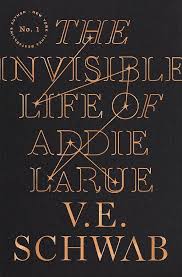Chapter III
byChapter III takes place in the coastal town of Fécamp, France, on a quiet yet profound day, July 29, 1778, where Addie is swept away by the sheer magnitude of the sea before her. Unlike anything she has ever encountered through books or maps, the vastness of the ocean stretches infinitely into the horizon, sparking a sense of awe and wonder in her. The sea represents a world far beyond the small village where she was raised, and its boundless expanse introduces a new depth to her existence that she had never before considered. As she spends her days by the pier, watching the tides and lost in her own thoughts, the distant tensions of Paris seem to fade into oblivion. The unrest caused by food shortages and the discontent that brews in the heart of the city feel like another world altogether, yet Addie finds herself torn between the desire to escape to the unknown and an inexplicable hesitation that keeps her rooted in place.
One stormy afternoon, while Addie is reading Shakespeare’s The Tempest on the beach, a figure from her past emerges—Luc, the enigmatic man whose presence both unsettles and captivates her. Their history, filled with moments of both tension and reluctant truce, makes his sudden appearance all the more haunting. Luc’s allure is magnetic, yet his sinister nature lingers in the back of Addie’s mind, heightening the discomfort she feels in his company. He casually hints at his influence on the course of history, even suggesting a connection to Shakespeare himself—a claim that Addie finds hard to believe, yet cannot entirely dismiss. As the storm intensifies, Luc invites Addie to seek shelter, leading her to a church, a location that seems out of place given his devilish aura. Inside the church, the contrast between the sanctity of the space and the chaotic storm outside underscores the tension between the divine and the forces that seem to manipulate reality in ways beyond Addie’s understanding.
In the stillness of the church, Addie and Luc engage in a conversation that touches on themes of belief, faith, and the nature of existence. Addie, a skeptic at heart, shares her disconnection from faith, unable to connect with the divine or believe in God in any meaningful way, while finding herself continuously confronted by Luc, a figure who seems to possess powers beyond explanation. Luc provocatively asserts that divinity is a matter of perspective, using his manipulation of reality as evidence of his god-like abilities. As their dialogue delves deeper, the discussion shifts to the nature of souls, with Luc presenting a disturbing perspective on their worth and how they are treated, using a glowing marble as a metaphor to illustrate his point. This unsettling conversation forces Addie to reflect on her own sense of freedom, the limits of her power, and the unseen forces that govern her life.
The exchange between Addie and Luc in the church encapsulates the complexity of their relationship, a dance of power, skepticism, and exploration of the human experience. Their dialogue speaks to the broader themes of freedom and control, raising questions about the nature of belief, the fragility of human understanding, and the fine line between the divine and the diabolical. Through their interaction, Addie is left questioning not just the reality of her existence, but the very forces that shape it—forces she is beginning to realize may be beyond her comprehension. As she listens to Luc’s provocations, she becomes increasingly aware of her own vulnerability in a world where the boundaries between the human and the divine are no longer clearly defined. The storm outside rages on, a fitting backdrop for the turbulence she feels inside, as she stands at the crossroads of understanding and uncertainty.


